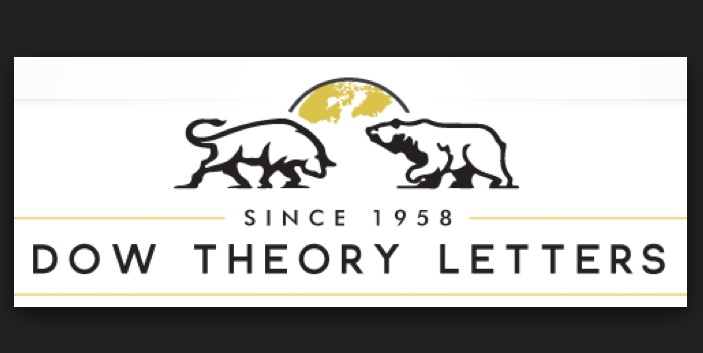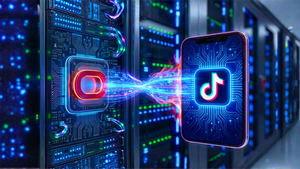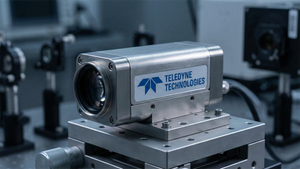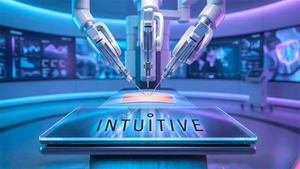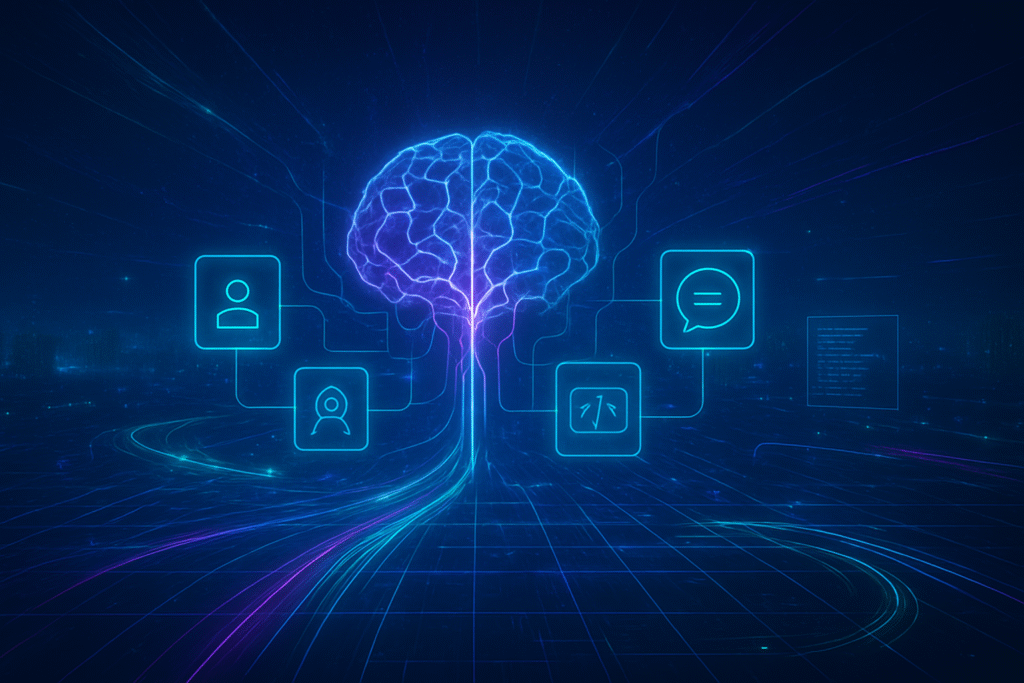
OpenAI's highly anticipated DevDay 2025, held on October 6th, has fundamentally reshaped the landscape of AI application development, signaling a strategic pivot for ChatGPT from a powerful conversational agent to an emergent AI operating system. The event unveiled a groundbreaking suite of tools – the Apps SDK, AgentKit, and ChatKit – alongside a significant evolution of the GPT Store concept, all designed to empower developers and dramatically expand ChatGPT's capabilities. These announcements promise to usher in an era where AI agents and interactive applications are seamlessly integrated into our daily digital interactions, making AI more accessible, versatile, and deeply embedded in our workflows.
The immediate significance of these launches is profound. For end-users, ChatGPT is no longer just a chatbot; it's a dynamic platform capable of executing complex tasks by leveraging a rich ecosystem of integrated applications. For developers, OpenAI has rolled out the red carpet, offering unprecedented tools and distribution channels to build, deploy, and monetize sophisticated AI experiences. This move solidifies OpenAI's (Private) ambition to be at the forefront of the AI revolution, not just in model development, but in creating the foundational infrastructure for the next generation of intelligent applications.
A Deep Dive into OpenAI's Transformative Toolkit
The core of DevDay 2025's announcements lies in a meticulously crafted set of development tools: the Apps SDK, AgentKit, and ChatKit, alongside a re-envisioned approach to the GPT Store. Each component plays a crucial role in fostering a more integrated and powerful AI ecosystem.
The Apps SDK (Software Development Kit) stands out as a game-changer, enabling developers to embed full-fledged, interactive applications directly within the ChatGPT interface. This moves beyond the previous paradigm of custom GPTs or external marketplaces, allowing users to invoke and interact with third-party services seamlessly within their conversations. These applications can surface contextually based on user prompts or be explicitly called, offering rich UIs and direct data exchange with the AI model via the new Model Context Protocol (MCP) standard. Initial launch partners include industry giants like Booking.com, Canva (Private), Coursera (NYSE: COUR), Expedia (NASDAQ: EXPE), Figma (Private), Spotify (NYSE: SPOT), and Zillow (NASDAQ: Z), showcasing the breadth of potential integrations from generating music playlists to designing graphics or searching for real estate, all without leaving ChatGPT. This direct embedding and contextual surfacing represents a significant departure from fragmented app experiences.
AgentKit is a comprehensive toolkit designed to streamline the creation, deployment, and optimization of sophisticated AI agents. Described by OpenAI CEO Sam Altman as a "complete set of building blocks," AgentKit aims to bridge the gap between prototyping and production-ready agents. Its key components include an Agent Builder, a visual, drag-and-drop interface for orchestrating complex multi-agent workflows; a Connector Registry for managing data and tool integrations across OpenAI products; ChatKit (which is also a standalone component) for embedding customizable chat-based agent experiences; and enhanced Evals capabilities, offering datasets, trace grading, automated prompt optimization, and support for third-party models to ensure agent performance and reliability. AgentKit builds upon OpenAI's existing Responses API and Agents SDK, offering a more robust and integrated pathway for developers.
ChatKit, while a component of AgentKit, was highlighted for its specific role in enabling developers to embed native-feeling, customizable chat interfaces for their agents directly into their own applications and websites. This allows for brand-aligned conversational experiences that leverage the intelligence of agents built with AgentKit.
The GPT Store, initially conceptualized as a marketplace for custom GPTs, has evolved strategically. Instead of a separate storefront, the Apps SDK effectively transforms ChatGPT itself into the distribution channel, allowing third-party applications to be directly integrated and contextually offered within the main conversational interface. This integrated approach suggests a move towards a more fluid and less segmented app discovery experience within ChatGPT. Initial reactions from the AI research community and industry experts are overwhelmingly positive, highlighting the potential for unparalleled integration and a significant boost to developer productivity and innovation. Many see this as OpenAI's boldest move yet to establish ChatGPT as the central hub for AI-powered interactions.
Competitive Implications and Market Shifts
OpenAI's DevDay 2025 announcements carry substantial implications for the competitive landscape, poised to benefit specific companies while potentially disrupting others. The clear winner here is OpenAI (Private) itself, solidifying its position not just as a leading AI model developer but as a foundational platform provider. By offering an integrated ecosystem for app and agent development and distribution, OpenAI aims to capture a significant portion of the value chain in AI application creation and usage. The availability of GPT-5 Pro in the API, along with gpt-realtime-mini and Sora 2, further cements its technological leadership, providing developers with cutting-edge models to power their new applications.
Companies that quickly adopt the Apps SDK and AgentKit, particularly the initial launch partners like Booking.com, Canva (Private), Coursera (NYSE: COUR), Expedia (NASDAQ: EXPE), Figma (Private), Spotify (NYSE: SPOT), and Zillow (NASDAQ: Z), stand to gain significant first-mover advantages. They will be able to reach ChatGPT's massive user base (over 800 million weekly active users) with deeply integrated, AI-powered experiences, potentially driving substantial user engagement and new revenue streams through features like the Instant Checkout. This creates a powerful new distribution channel that rivals traditional app stores or web search.
The competitive implications for major AI labs and tech giants are considerable. Companies like Google (NASDAQ: GOOGL), Microsoft (NASDAQ: MSFT), and Meta (NASDAQ: META), which are also investing heavily in AI platforms and agentic systems, will need to accelerate their own integration strategies and developer offerings to keep pace. OpenAI's move to embed applications directly into the conversational flow challenges existing paradigms of app discovery and usage, potentially disrupting established app store models and even aspects of web search. Startups focused on building niche AI tools or agents may find a new, powerful platform for distribution and monetization, but they will also face increased competition within this integrated ecosystem. The market is shifting towards platforms that can offer comprehensive, end-to-end solutions for AI development and deployment, making strategic partnerships and platform integration crucial for survival and growth.
The Broader AI Landscape and Future Trajectories
These announcements from OpenAI DevDay 2025 fit squarely within the broader AI trend towards more agentic, integrated, and application-oriented artificial intelligence. The vision of AI as a capable assistant that not only understands but also acts upon user requests by leveraging a vast array of tools and services is rapidly materializing. This represents a significant leap from earlier conversational AI, which was primarily focused on generating text or answering questions. The introduction of the Apps SDK and AgentKit pushes the boundaries of what a single AI interface can achieve, transforming ChatGPT into a central hub for digital interaction.
The impacts are wide-ranging. On the positive side, we can expect a surge in innovative AI applications that are more intuitive and powerful, lowering the barrier for users to interact with complex digital services. Productivity across various sectors, from creative industries to enterprise operations, is likely to see a boost as AI agents become more adept at orchestrating multi-step workflows. However, potential concerns also emerge. The increased reliance on a single platform like ChatGPT for a multitude of tasks raises questions about data privacy, security, and potential monopolistic tendencies in the AI application space. The ethical implications of highly autonomous AI agents, especially concerning decision-making and potential biases, will also require continuous scrutiny and robust governance frameworks. This development draws parallels to the advent of smartphone app stores, but with the added layer of an intelligent AI layer orchestrating the interactions, making it a potentially even more transformative milestone.
The Road Ahead: What to Expect
Looking ahead, the near-term and long-term developments stemming from DevDay 2025 are poised to be rapid and impactful. In the near term, we can expect a rapid expansion of the application ecosystem within ChatGPT as developers leverage the Apps SDK and AgentKit. More businesses and independent developers will likely integrate their services, leading to a richer and more diverse range of AI-powered functionalities directly accessible through conversational interfaces. The monetization features, including Instant Checkout, will incentivize this growth, potentially creating a thriving new economy around ChatGPT.
Potential applications and use cases are virtually limitless. We could see sophisticated AI agents assisting with personalized education, managing complex financial portfolios, orchestrating entire project management workflows, or even facilitating advanced scientific research by interacting with specialized databases and simulation tools. The ability to embed customizable chat agents via ChatKit will also lead to more intelligent customer service bots, personalized virtual assistants, and interactive training modules across various industries. Challenges that need to be addressed include ensuring the security and reliability of third-party applications, managing the complexity of multi-agent interactions, and continually refining the AI's ability to seamlessly select and utilize the most appropriate tools for a given task. Experts predict that this move will accelerate the development of truly autonomous AI agents capable of performing a wide array of human-like tasks, fundamentally altering how we interact with technology and even each other. The focus will increasingly shift from simply generating content to enabling intelligent action and orchestration.
Wrapping Up: A New Era for AI
OpenAI DevDay 2025 represents a pivotal moment in the history of artificial intelligence, marking a clear trajectory towards an integrated, agentic, and highly interactive AI ecosystem. The launch of the Apps SDK, AgentKit, and ChatKit, coupled with the evolution of the GPT Store concept, signifies OpenAI's ambition to transform ChatGPT into a foundational platform – an AI operating system – that empowers developers to build and distribute sophisticated AI applications at an unprecedented scale.
The key takeaway is that AI is moving beyond mere conversation to intelligent action. This development is not just an incremental improvement but a fundamental shift in how we conceive of and interact with AI. It promises a future where AI is not just a tool, but an orchestrator of digital services, making complex tasks simpler and more intuitive for everyone. The long-term impact could be as profound as the advent of the internet or mobile computing, fundamentally altering industries, job roles, and daily life. What to watch for in the coming weeks and months is the speed and creativity with which developers adopt these new tools, the emergence of killer applications within the ChatGPT ecosystem, and the competitive responses from other major tech players. The race to build the ultimate AI platform has just intensified, and OpenAI has certainly thrown down a formidable gauntlet.
This content is intended for informational purposes only and represents analysis of current AI developments.
TokenRing AI delivers enterprise-grade solutions for multi-agent AI workflow orchestration, AI-powered development tools, and seamless remote collaboration platforms.
For more information, visit https://www.tokenring.ai/.
